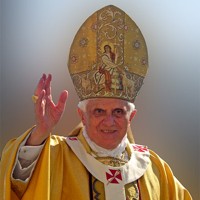Pope Benedict XVI traveled to Lebanon earlier this month, where he addressed the conflict in Syria at a heavily attended mass and met with Lebanon’s political leaders. In an email interview, Samuel Gregg, director of research at the Acton Institute, discussed Vatican foreign policymaking.
WPR: Who sets Vatican foreign policy and what are the principal elements driving policy?
Samuel Gregg: The Holy See’s foreign policy is subject to the pope’s direction and that of the secretary of state, presently Cardinal Tarcisio Bertone. In formal terms, it is carried out primarily by the Secretariat of State, specifically its Second Section, known as the “Section for Relations with States.” This section is currently headed by Archbishop Dominique Mamberti, secretary for relations with states. It supervises the Holy See’s diplomatic relations with civil governments and its formal presence in international organizations as well as the Holy See’s participation in international conferences. To that end, the Holy See appoints ambassadors, known as nuncios, to nations with which it has diplomatic relations, observers with the status of nuncio to international organizations and apostolic delegates to nations with which it does not have diplomatic relations.

